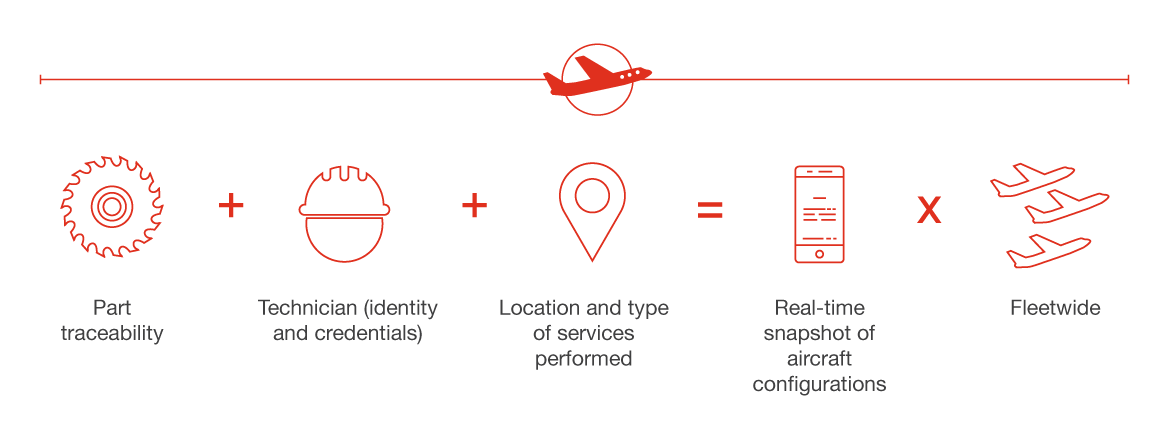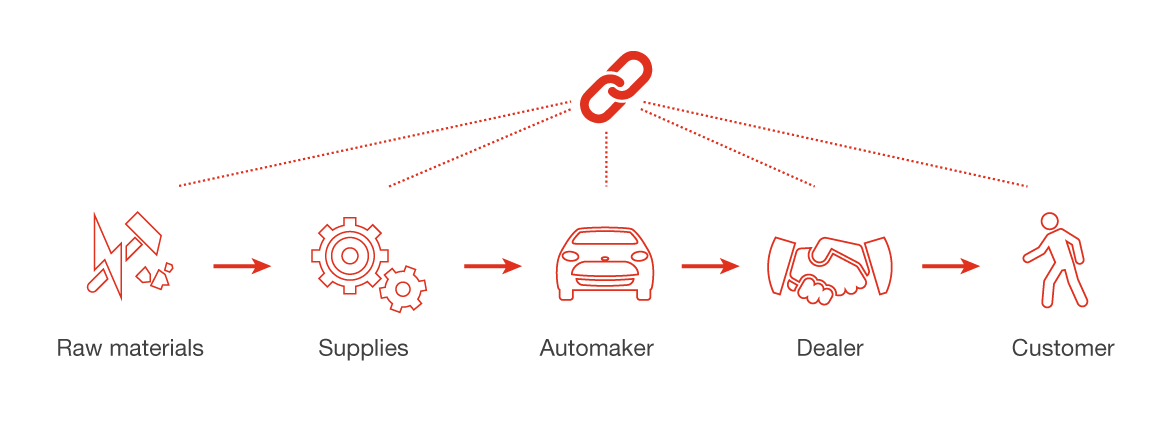{{item.title}}
{{item.text}}

{{item.text}}
Manufacturers are developing blockchain implementations that have the potential to help them streamline operations, gain greater visibility into supply chains and track assets with unprecedented precision. Blockchain has potential to revolutionize how manufacturers design, engineer, make and scale their products. What’s more, because of its power to foster trust among competitors who must nonetheless cooperate within common ecosystems, it’s rewriting how firms interact.
¹ PwC’s Global CEO Survey 2019, ² PwC’s Global Blockchain Survey
From sourcing raw materials delivering the finished product, blockchain can increase transparency and trust at every stage of the industrial value chain. Pain points it could help address include:
Blockchain-powered solutions can seamlessly aggregate all of this information, delivering significant value for industrial companies, and can also help unlock the full potential of other advanced technologies like augmented reality, IoT and 3D printing.
Commercial aircraft are made up of millions of parts. Despite advances in sensor technology, data analytics and cloud computing, it can still be next to impossible to know which parts are on which plane, when they were last serviced and by whom.
Blockchain technology could provide the solution, increasing asset utilization, boosting aftermarket values and enhancing safety.
Learn more about how the adoption of blockchain can provide a boost of power and efficiency to the aerospace industry.
Carmakers manage massive and complex supply chains. And auto manufacturers are ultimately accountable to customers and regulators for their vehicles’ reliability and safety. Sufficient visibility into the provenance of the vehicles’ parts and their journey from the mine to the showroom floor is often lacking.
A blockchain-enabled solution would help automakers to track every step of that journey into all supply chain tiers. This could improve recall response and improve inventory management.
Blockchain solutions can create value for industrial companies in a number of ways. But that doesn’t mean it’s an equally tenable solution for all companies or every industrial manufacturing sector.
By focusing on four key areas early in their blockchain efforts, companies can set themselves on a path toward successful execution.
There is still plenty of room for industrial companies to be blockchain pioneers. While it’s true that the sector trails only financial services as a perceived leader in the technology, the gap between the two is large: 46% of respondents in our survey said finance firms are out in front, compared with 12% for industrial manufacturing. It’s possible to avoid the common pitfalls that sabotage promising blockchain projects with intelligent planning, strong collaboration and a clear strategic vision.
Any blockchain solution, no matter how prescient, is only as good as its execution. This is where PwC excels—by offering proven specialization in managing complex implementation programs from start to finish.
{{item.text}}

{{item.text}}

